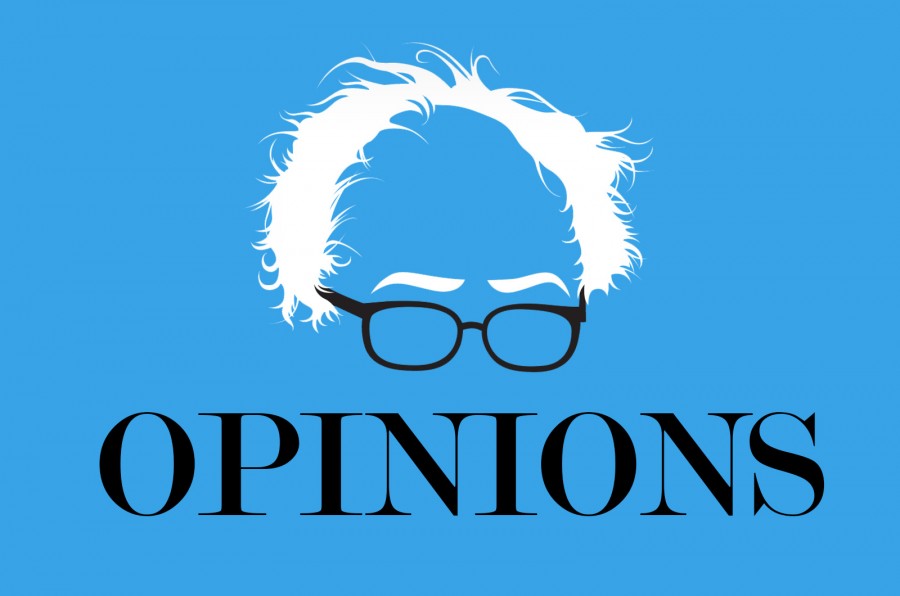The Summer of Sanders
September 24, 2015
Bernie Sanders entered the presidential race on April 30, 2015 in front of a small crowd of media and supporters outside the U.S. Capitol. Sanders, the 74-year-old Independent senator from Vermont, was largely dismissed by the mainstream media, seen as an improbable fringe candidate with no hope of crashing the Democratic Party’s coronation of former Secretary of State Hillary Clinton. Sanders’s announcement received 18 seconds on ABC’s World News Tonight, one sentence on CBS Evening News, and a short piece in the depths of section A of the New York Times, as reported by Columbia Journalism Review. If the mainstream media wasn’t talking about Sanders in April, it is now. America has begun to “Feel the Bern.”
This summer was intended to be a victory lap for Clinton, a dress rehearsal for her general election campaign next summer. Instead, the political world witnessed the summer of Sanders. The abrasive, quixotic senator with a thick Brooklyn accent was thought by politicians and pundits to only have impact in forcing Clinton to discuss more progressive policies.
Sanders has surged in the polls, propelled by a wave of political activism from the grassroots movement he has galvanized behind him. He’s played host to the largest crowds of any candidate since the race began, Democrat or Republican. 15,000 came out to hear him in Seattle, 28,000 in Portland, Ore., 27,500 in Los Angeles, and an impressive 11,000 in conservative Phoenix. The largest crowd Clinton has received was 5,500 at her formal campaign launch in New York City. Sanders snagged the coveted spot on the cover of the Sept. 17 issue of Time Magazine, and has collected donations from 400,000 Americans and counting, more than any other candidate.
On May 1, shortly after declaring his candidacy, Sanders trailed Clinton by 51 points in Iowa and 40 points in New Hampshire, the all-important first primary and caucus states. Flash forward four months to today: An amalgamation of recent polls shows Sanders holding a one-point lead over Clinton in Iowa and a 10-point lead in New Hampshire. Clinton, to be sure, has “felt the Bern.”
The summer of Sanders was unprecedented and contradicts many understood truths in presidential politics. For one, the United States has never been the most hospitable of arenas for socialist politicians. When you strip back the socialist label, what many Americans find is a passionate and authentic politician with common sense policies to ameliorate the inequalities entrenched in American society: removing money from politics, affordable college for all, reversing mass incarceration, taking on Wall Street, rebuilding our crumbling infrastructure, pay equity for women, and a single-payer healthcare system.
Sanders has tapped into an intense frustration Americans feel with politicians subjugated to the special interests of corporate America and the top one percent. Bereft of any patience for politics as usual, Sanders has made his career fighting against oligarchic forces attempting to deliver political power and wealth to the omnipotent American plutocrats–looking at you, David and Charles Koch. Spend a few minutes listening to Sanders and you will hear how the working class is working longer hours for lower wages, and how “it is a moral outrage that the top one-tenth of one percent today owns almost as much wealth as the bottom 90 percent.”
Sanders still has some work to do. He trails Clinton by 18 percentage points in a survey of likely Democratic voters at the national level. Good news for Sanders is that the lead was roughly 56 percentage points on May 1. More good news: he still has time. The first votes will not be cast in Iowa and New Hampshire for another five months. If he can secure those states he is all but guaranteed to receive a momentous bump in the polls that will position him to compete in each of the remaining 48 states. More to come from the surging Sanders campaign. The “Bern Notice” has been issued.






















